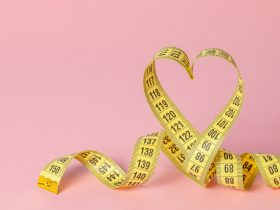Hair loss is one of the potential negative effects of losing weight. Rapid weight reduction, restrictive diets, and weight loss surgery can cause nutritional deficits, stress, and hormonal changes, all of which are hard on the body.
This article explores the causes of hair thinning following a significant weight reduction as well as possible solutions.
What causes hair to fall out sometimes after losing weight?
Nutrient shortages and other side effects of rapid weight loss are major contributors to hair loss during dieting. One of the leading causes of patchy hair loss on the scalp is a disorder called acute telogen effluvium (TE), which has been linked to both rapid weight reduction and tight diets.
TE typically begins three to six months after a precipitating event, such as a significant weight reduction. Restrictive diets, which often result in both weight loss and vitamin deficits, have been linked to other forms of hair loss as well. Androgenic alopecia (sometimes called male or female pattern baldness) and chronic TE (TE that lasts more than 6 months) are two examples.
Here are some dietary and weight-loss-related hair-loss triggers.
Weight loss surgeries
Hair loss is often a side effect of the protein, vitamin, and mineral shortages that accompany bariatric surgery. Hair loss was observed in 56% of patients who participated in a 2018 study of 50 people who had a sleeve gastrectomy, a surgical technique that eliminates a major piece of the stomach. Loss of hair was more common in women.
Significantly reduced levels of zinc and vitamin B12 were seen in the hair loss subjects both before and after surgery. Seventy-two percent of 112 women who had a sleeve gastrectomy in 2020 reported experiencing hair loss. Hair loss was first seen 3-4 months after surgery and persisted for an average of 5.5 months.
Some forms of weight loss surgery allow food to bypass a portion of the intestines, leading to malabsorption and an increased risk of deficiencies.
Restrictive diets
Stress or a lack of nutrients, both of which are frequent side effects of crash diets and restrictive diets that forbid entire food groups, can result in hair loss. Hair thinning has been linked to a lack of several nutrients, including iron, zinc, protein, selenium, and vital fatty acids. Studies have also linked extremely low-calorie diets to hair thinning and loss. Loss of hair has been associated with both extreme stress and calorie restriction.
Crash dieting
For healthy hair growth, you must eat enough. Consequences such as hair loss might result from a lack of essential nutrients in the body. Research has shown that crash dieters are more likely to experience hair loss due to the combination of rapid weight reduction, calorie restriction, nutritional inadequacies, and psychological stress.
For instance, one study conducted in 2015 on 180 women with diffuse hair loss indicated that iron deficiency and psychological stress were the most common causes of hair loss.
Meals with very little protein
Hair growth requires amino acids, which are found in proteins. That’s because keratin, hair’s primary structural protein, can’t be made without amino acids.
Hair loss is a symptom of protein malnutrition, which occurs when the body does not get enough of the nutrients. Therefore, you may have hair loss if you adhere to a low-calorie weight loss plan that is deficient in protein.
The body’s protein-dependent processes, such as tissue repair, digestion, regulation of pH and water balance, and hormone production, take a back seat when protein needs aren’t met. Hair loss might occur since maintaining a full head of hair isn’t strictly necessary.
How risky is it to lose your hair?
While hair loss itself isn’t harmful, the underlying factors that lead to it after a significant weight reduction are sometimes serious. Iron deficiency anemia, muscle loss, and other health problems are just some of the negative outcomes of rigorous calorie restriction and other nutrient deprivation.
Hair loss is just one symptom of iron deficiency anemia, which can also cause cognitive decline, infertility, heart problems, depression, and a weakened immune system, among other things. Reducing your calorie and protein intake can lead to serious health problems like muscle weakness, heart disease, digestive disorders, weakened immunity, and even depression.
Other medical conditions, such as autoimmune disorders, can also cause hair loss. Therefore, if you’re having hair loss, it’s crucial to consult a doctor, as it may not be due to losing weight.
Losing weight without losing your hair
Both dietary deficits and rapid weight reduction have been linked to hair loss during weight loss. You should therefore prioritize safe and long-term weight loss. Crash and restricted diets can cause physical and mental health problems, including hair loss and weight gain.
Rather than following the latest craze, go for a healthy, well-rounded diet that will fuel your body to its full potential. If you care about your physical and mental health as well as avoiding negative consequences like hair loss, you must refuse to participate in restrictive diets that promise quick weight loss.
Hair loss is linked to a lack of iron and zinc, both of which may be lacking in a vegetarian or vegan diet. If you follow such a diet, it is especially important to incorporate nutrient-dense foods and supplement them with nutrients your diet lacks.
Make sure your levels of zinc, iron, and vitamin B12 are at their best before having weight reduction surgery, and take any supplements your doctor or dietician recommends following the procedure.
Methods for enhancing hair growth
It’s important to get to the bottom of why your hair is falling out before you try to treat it. Never assume that rapid weight loss or nutritional deficits are the only reasons for hair loss. Correcting a vitamin shortfall, such as a lack of zinc or iron, may prevent further hair loss and even stimulate hair growth.
If you suspect that a crash diet or other restrictive eating plan is to blame, it is critical that you immediately abandon such a plan and replace its caloric and nutritional deficiencies with a healthy, well-rounded eating plan. Food alone may not be sufficient to restore nutrient levels if you have a deficiency; therefore, you may need to take a supplement. However, studies suggest that vitamins may not help with hair loss if you don’t have a dietary shortage.
A doctor will be able to determine what’s triggering your hair loss and devise a treatment strategy to reverse it.
Nutrient shortages are one potential cause of hair loss during or after a weight loss program. However, you shouldn’t immediately link your hair loss to your diet because it could also be the result of a more serious issue, like an underlying medical condition. Consult a doctor or certified dietician to determine the root of your hair loss and start a treatment plan that will promote new growth.
















Find Us on Socials